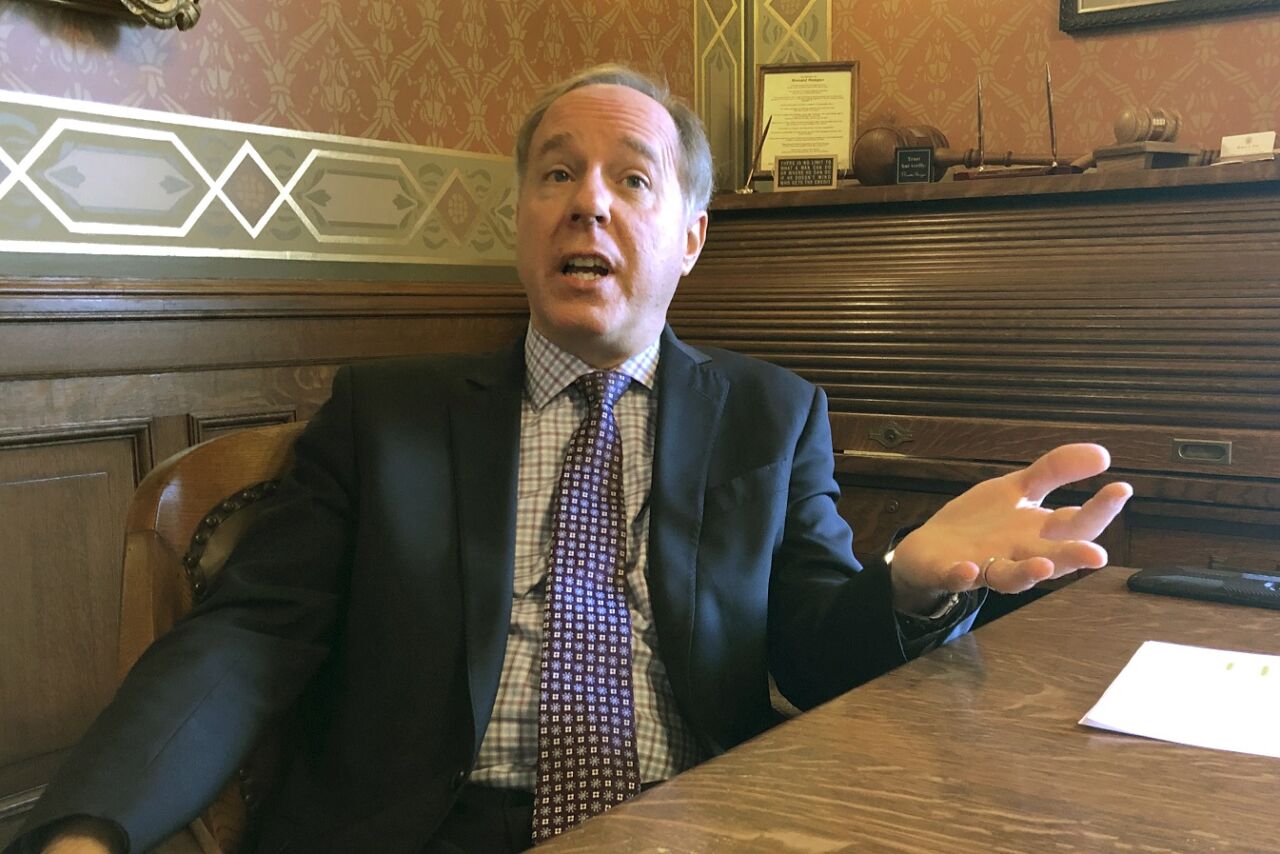Wisconsin
Wisconsin school leaders blast Republican K-12 spending plan

MADISON, Wis. (AP) — Superintendents, school board members and other education leaders on Monday demanded that Republican lawmakers devote more state aid to Wisconsin schools even though the federal government is set to pump billions in pandemic relief dollars to Wisconsin districts.
Superintendents and other school officials have been criticizing the amount of state aid for schools the Legislature’s Republican-controlled finance committee inserted in the state budget proposal last week. The full Legislature is expected to pass the budget, which would run from this July through mid-2023, as soon as next week.
School leaders predicted that without more state funding, they might have to hold staff salaries flat or cut liberal arts classes.
“All students and staff across our state deserve better than zero,” Verona Area School District Superintendent Tremayne Clardy said outside the state Capitol. “This budget simply does not meet the needs of students and families across the state.”
Democratic Gov. Tony Evers proposed giving K-12 schools $1.6 billion over the next two years. Republicans on the Legislature’s budget committee scrapped that plan and instead allocated $128 million to schools. That was about $400 million less than they needed to allocate to ensure that the state’s schools would receive about $2.3 billion in federal pandemic relief aid.
The budget committee last week solved the problem by cutting schools and technical colleges’ share of local property taxes by $647 million and backfilling the lost revenue with state aid. The move would ensure that the state is spending enough on schools to qualify for the federal aid, but it wouldn’t provide schools any additional money beyond the $128 million Republicans already earmarked for them.
Democrats have decried the maneuver as a shell game and challenged the GOP to devote more state funding to schools in light of the state’s unprecedented $4.4 billion surplus. Republicans have defended the funding level, pointing out that schools are receiving $2.6 billion in federal aid.
Districts can tap that money over the next four years to reimburse themselves for a host of expenses, including providing mental health support, sanitizing facilities, maintaining operations, keeping staff on the payroll and addressing learning loss among students. Milwaukee Public Schools is in line for nearly $800 million. The Madison school district is in line for $70.6 million.
But rural districts are slated to receive considerably less in federal aid and school advocates say it’s not wise to rely on one-time federal money to keep districts afloat. They insist that Republican legislators need to commit to Wisconsin schools by sending them more state funding.
“It is irresponsible to use one-time money designated for a pandemic response to meet ongoing needs, instead of a committed investment from the state, which our youth deserve,” state Superintendent Carolyn Stanford Taylor said in a statement Friday.
Wisconsin Association of School Boards Executive Director John Ashley praised Republicans for securing the federal aid but lamented how the finance committee “minimized” state aid.
“The one-time federal relief funding, while substantial for many districts, is temporary,” Ashley said in a statement Friday. “If this state budget is signed into law as is, schools will once again be denied sustainability and predictability in setting their budgets to fund normal, ongoing school operations.”
Heather Dubois Bourenane, executive director of the public school advocacy group Wisconsin Public Education Network, echoed Ashley on Monday, saying that “just because we got a stimulus check we don’t stop paying our mortgages.”
Aides for budget committee co-chairs Sen. Howard Marklein and Rep. Mark Born didn’t immediately respond to messages seeking comment.
The Assembly is expected to take its first floor votes on the budget next week. It’s unclear when the Senate might take up the spending plan. Once both chambers approve the budget, it will go to Evers, who has broad partial veto power. Evers, a former state superintendent of schools, has also called on the Legislature to increase K-12 funding more in line with what he proposed.
Evers’ spokeswoman, Britt Cudaback, didn’t immediately respond to a message seeking comment.
Follow Todd Richmond on Twitter: https://twitter.com/trichmond1

